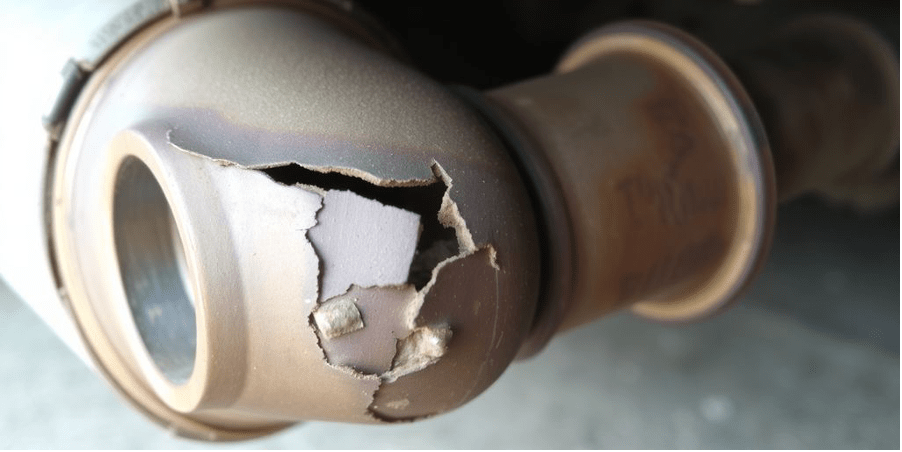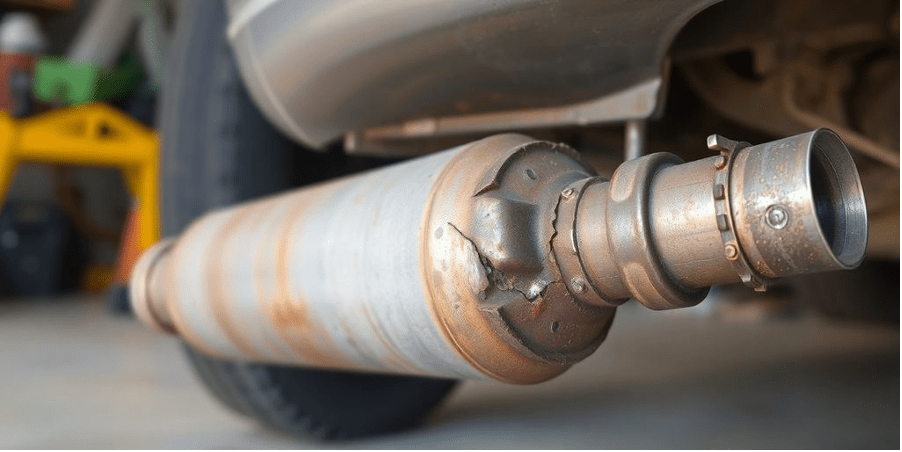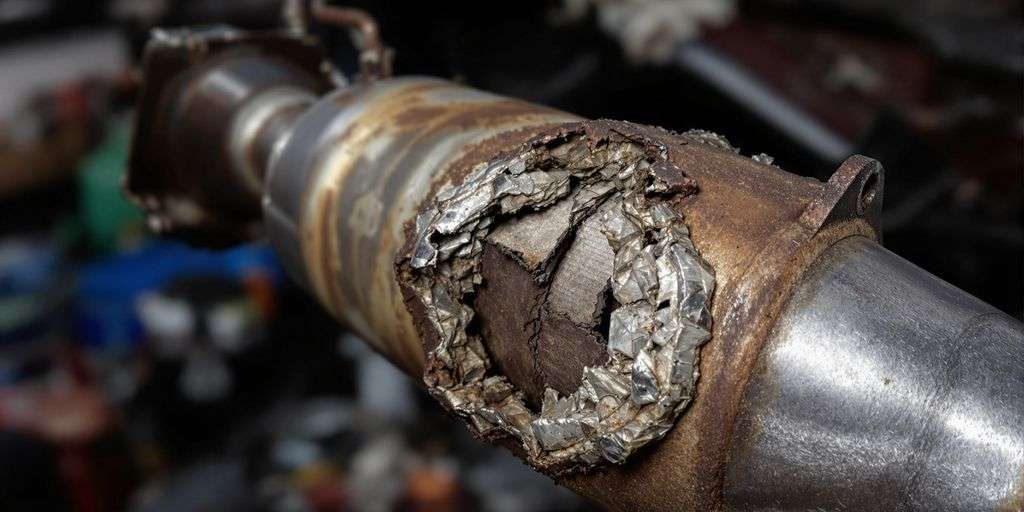Key Takeaways
- The car's year, make, and model play a big role in its value, even with a broken catalytic converter.
- A car's overall condition can either boost or lower its worth significantly.
- Understanding the catalytic converter's role helps in assessing repair costs versus selling.
- Selling options include junkyards, private buyers, or online platforms, each with pros and cons.
- Legal and ethical considerations are crucial when selling a car with known issues.
Factors Affecting the Value of a Car with a Broken Catalytic Converter
Vehicle's Year, Make, and Model
The year, make, and model of a vehicle are the first things buyers look at when assessing a car's value, even if it has a broken catalytic converter. Newer models from reputable brands tend to hold their value better, whereas older cars may not be worth as much. For instance, a 2020 Honda Accord with a faulty catalytic converter might still fetch a decent price compared to a 2005 model.
Overall Condition of the Vehicle
A car's overall condition plays a huge role in determining its worth. A well-maintained vehicle, even with a damaged catalytic converter, can still be appealing to buyers. Consider things like the body condition, interior, and mileage. If the car is in great shape otherwise, it might still be a good deal for someone willing to repair it.
Salvageability of the Car
The potential to salvage a car is another critical factor. If the car has other significant issues beyond the broken catalytic converter, its value will drop. On the flip side, if the catalytic converter is the only major problem, the car might still be worth a good amount to someone who sees its potential. In some cases, selling the car to a junkyard or salvage yard could be a practical option, especially if they offer free removal services.
Understanding the Impact of a Broken Catalytic Converter
Role of the Catalytic Converter in a Vehicle
A catalytic converter plays a vital role in your vehicle's exhaust system. It's like the unsung hero that transforms harmful pollutants into less harmful emissions before they're released into the air. This little gadget sits underneath your car, usually near the engine, and uses a catalyst to break down toxic gases. Without it, your car would spew out all sorts of nasty stuff into the environment.
Common Symptoms of a Faulty Catalytic Converter
When a catalytic converter starts to fail, you'll notice a few telltale signs. First off, your check engine light might pop on, which is never a good sign. You could also experience a drop in fuel efficiency because the engine has to work harder. Then there's the smell—like rotten eggs—coming from the exhaust. If your car struggles to start or has poor acceleration, these could also be symptoms. And don't forget about those emissions tests; a faulty converter can lead to a failed test.
Environmental and Legal Implications
Driving around with a broken catalytic converter isn't just bad for your car; it's bad for the environment too. This device is there to help reduce harmful emissions, so without it, your car is contributing more pollution. Plus, there are legal implications to consider. In many places, it's illegal to drive a vehicle that doesn't meet emissions standards. So, ignoring a broken catalytic converter could land you in some legal hot water.
Driving with a faulty catalytic converter isn't just a personal issue; it's a community concern. Every vehicle on the road without a working converter is adding unnecessary pollution to our shared environment. It's important to address these issues not just for your car's health, but for the planet's too.
Options for Selling a Car with a Broken Catalytic Converter
Selling to a Junkyard or Salvage Yard
If your car has a broken catalytic converter, one straightforward option is to sell it to a junkyard or salvage yard. These places often buy vehicles in any condition, including those with missing or damaged parts. The catalytic converter, even if broken, contains valuable metals like rhodium and palladium, which can be recycled. Junkyards typically offer a simple, no-hassle transaction, and you might get paid on the spot. However, it's wise to shop around and get multiple quotes to ensure you're getting a fair deal.
Private Sale Considerations
Another route is selling your car privately. This can potentially fetch a higher price than a junkyard, but it requires more effort. You'll need to list your car on platforms like Craigslist or Facebook Marketplace and communicate with potential buyers. Be upfront about the car's condition to avoid any disputes later. Cash is the preferred payment method, as it avoids delays associated with checks or bank transfers. Remember to document the sale thoroughly by keeping a copy of the buyer's driver's license and contact information.
Online Selling Platforms
Online selling platforms are increasingly popular for offloading cars with issues like a broken catalytic converter. Websites such as eBay Motors or Cars.com allow you to reach a wider audience. These platforms can provide convenience because you can negotiate and complete transactions without leaving your home. Selling online might also offer more competitive pricing compared to local options. Just ensure to describe your car accurately and be ready to answer questions from potential buyers.
Selling a car with a broken catalytic converter might seem daunting, but with the right approach, it can be a smooth process. Choosing the right platform or buyer can make a significant difference in the outcome of your sale.
Evaluating Repair Versus Sale for a Car with a Broken Catalytic Converter
Cost-Benefit Analysis of Repairing
Deciding whether to fix your car's catalytic converter or sell it as-is can be tricky. The repair costs can vary widely, typically ranging from £150 to £900, depending on the vehicle and location. It's vital to weigh these expenses against the potential increase in the car's resale value. If the catalytic converter is the only major issue, repairing it might boost the car's worth enough to make it a good investment. However, if there are other significant problems, it might not be worth the hassle.
Impact on Vehicle Value
A car with a working catalytic converter is generally more appealing to buyers. A functional converter ensures the car meets environmental standards, which can be a selling point. If your car is otherwise in good shape, repairing the catalytic converter could make a significant difference in its market price. However, if the car is older or has other issues, the gain might not justify the cost.
Market Demand for Repaired Vehicles
When considering repair, it's also important to think about the market demand for your specific vehicle model. Some cars are in high demand even if they have minor issues, while others may not attract much interest regardless of condition. Researching similar vehicles online can give you a sense of how much buyers are willing to pay. Sometimes, investing in a repair can make your car more competitive in the market, but it's essential to ensure that the cost won't exceed the potential sale price.
Legal and Ethical Considerations When Selling a Car with a Broken Catalytic Converter

Disclosure Requirements to Buyers
When you're selling a car with a broken catalytic converter, it's essential to be upfront about the car's condition. Transparency is key to avoiding legal troubles and ensuring a smooth transaction. You should provide potential buyers with a detailed account of the car's issues, including the faulty catalytic converter. This not only builds trust but also sets realistic expectations.
Legal Implications of Non-Disclosure
Failing to disclose a broken catalytic converter can lead to serious legal consequences. It's not just about losing a sale; non-disclosure can result in legal action against you. Buyers have the right to know what they're purchasing, and withholding information can be seen as misrepresentation. In some cases, the vehicle might even be seized if it's found to be sold under false pretenses.
Ethical Selling Practices
Ethically, selling a car means being honest about its condition. This includes providing all necessary documents, like the title and any repair orders. It's not just about following the law; it's about doing the right thing. Ethical selling can enhance your reputation and make future transactions easier. Remember, a fair and honest sale benefits both parties involved.
Selling a car with a broken catalytic converter can be tricky, but honesty and transparency will always pave the way for a successful transaction. Buyers appreciate knowing the full story, and it often leads to a smoother sale process.
Maximizing the Value of a Car with a Broken Catalytic Converter

Using Online Valuation Tools
When you're trying to figure out how much your car is worth with a busted catalytic converter, online valuation tools are your best friend. These tools will ask for details like the car's make, model, year, and condition. They give you a quick snapshot of what you might expect to get if you sell it. It's like getting a ballpark figure without leaving your couch. Just remember, these are estimates, so take them with a grain of salt.
Negotiation Tips for Sellers
Getting a good price for your car often comes down to how well you can negotiate. Start by setting a reasonable asking price. Know your car's strengths and be upfront about the catalytic converter issue. This honesty can actually work in your favor because buyers appreciate transparency.
- Do your homework: Know the market value of similar cars.
- Highlight any unique features your car has, like a recent paint job or new tires.
- Be prepared to walk away if the offer is too low.
Understanding Scrap Metal Value
Even if your car's catalytic converter is toast, the vehicle still has value in its metal. Cars are made of steel, aluminum, and sometimes even copper. These materials can be worth quite a bit, especially if metal prices are up. It's a good idea to contact local scrap yards to see what they might offer for your vehicle.
Selling a car with a broken catalytic converter doesn't have to be a nightmare. With the right approach, you can still get a fair deal. Whether you use online tools or negotiate face-to-face, there's always a way to make the most of your situation.
Wrapping It Up: The Value of a Car with a Faulty Catalytic Converter
So, there you have it. Figuring out what your car's worth when the catalytic converter's on the fritz isn't as straightforward as you might think. You've got to consider the car's make, model, and year, how it's holding up otherwise, and whether it's even worth salvaging. Sure, you can use online calculators to get a ballpark figure, but remember, they don't know your car like you do. Selling it? You've got options. Junkyards, private buyers, or even online platforms are all on the table. Just be upfront about the car's condition. And hey, if fixing the converter seems like too much hassle, maybe it's time to let it go. At the end of the day, it's about weighing your options and deciding what's best for you. Good luck!
Frequently Asked Questions
What is a catalytic converter and why is it important?
A catalytic converter is a part of your car's exhaust system that reduces harmful emissions. It helps keep the air cleaner by turning pollutants into less harmful gases.
How can I tell if my catalytic converter is broken?
Signs of a broken catalytic converter include a drop in fuel efficiency, a check engine light, a rotten egg smell, or trouble starting and accelerating your car.
Is it legal to sell a car with a broken catalytic converter?
Yes, it is legal to sell a car with a broken catalytic converter, but you must tell the buyer about the issue. Not disclosing it can lead to legal trouble.
How much can I get for a car with a broken catalytic converter?
The value depends on factors like the car's make, model, year, and condition. Generally, you can sell it to a junkyard, private buyer, or online platform, but expect to get less than for a fully working car.
Can I drive my car if the catalytic converter is broken?
Driving with a broken catalytic converter is not recommended. It can lead to more engine problems and may be illegal in some areas due to emission laws.
What are my options for selling a car with a broken catalytic converter?
You can sell it to a junkyard, a private buyer, or use an online platform. Each option has its pros and cons, like convenience and the price you might get.



